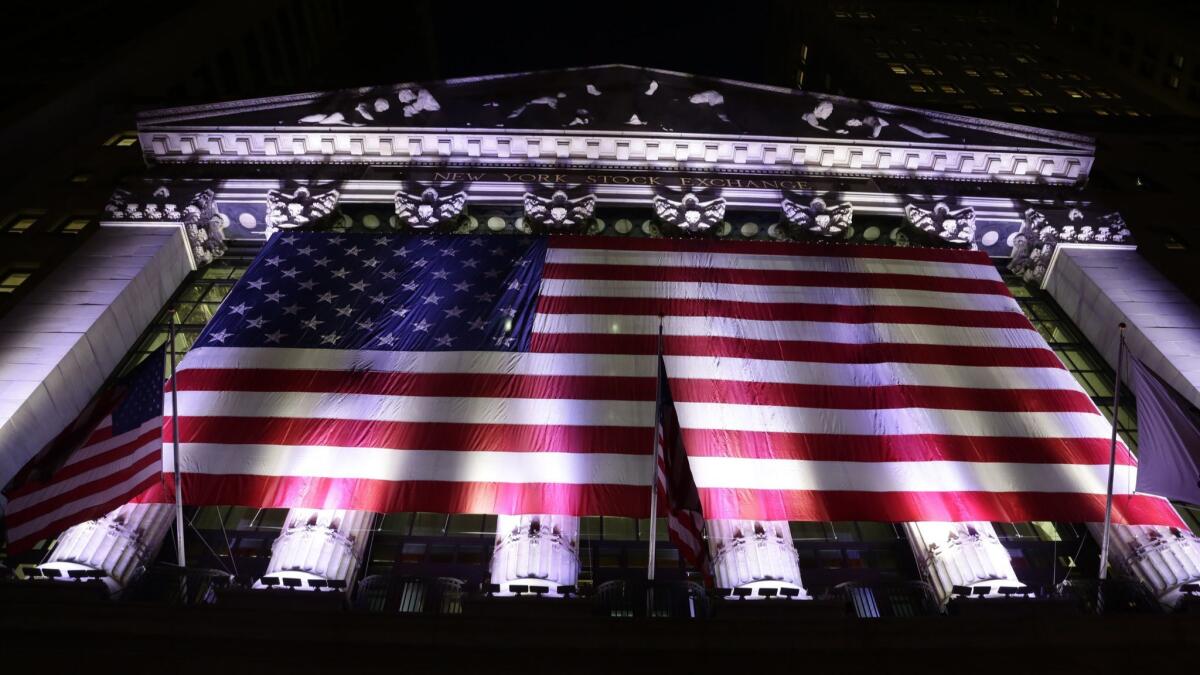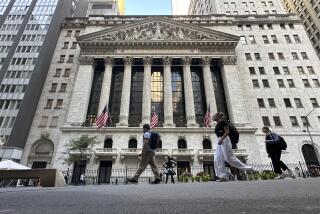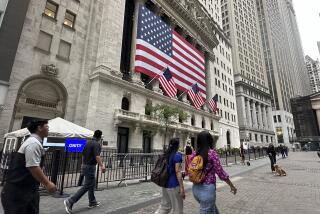Stocks lose ground during short, light trading day; Tesla slumps

U.S. stocks closed lower Tuesday following a swift sell-off in the final minutes of a shortened trading session ahead of the Independence Day holiday.
The losses snapped a three-day winning streak for the stock market, wiping out modest gains from earlier in the day.
Technology companies and banks led the market slide, outweighing gains by healthcare and energy stocks. Gainers slightly outnumbered fallers on the New York Stock Exchange, with small-company stocks faring better than the overall market. Trading volume was lighter than usual. U.S. markets will be closed Wednesday.
The Standard & Poor’s 500 index fell 13.49 points, or 0.5%, to 2,713.22. The Dow Jones industrial average fell 132.36 points, or 0.5%, to 24,174.82. The Nasdaq slid 65.01 points, or 0.9%, to 7,502.67. Smaller-company stocks bucked the broader market decline. The Russell 2000 index ticked up 5.33 points, or 0.3%, to 1,660.42.
Bond prices rose. The yield on the 10-year Treasury fell to 2.83% from 2.87%.
Technology and bank stocks took some of the heaviest losses Tuesday. Chipmaker Micron Technology slumped 5.5% to $51.48. Charles Schwab slid 2.1% to $50.24.
Tesla slumped 7.2% after the electric carmaker said its head of engineering has left the company and after Business Insider, citing internal documents and an unnamed source, reported that Tesla seemed to have stopped requiring that the Model 3 cars it produces undergo a certain brake test.
Campbell Soup climbed 1.8% to $41.03 after the New York Post reported an activist investor is in talks with shareholders about potentially selling the company.
U.S. markets reopen Thursday, and investors will have no shortage of reasons to snap out of the holiday lull by the end of the week.
On Friday, the United States is scheduled to start imposing a 25% tariff on $34 billion worth of Chinese imports. And China is expected to strike back with tariffs on a similar amount of U.S. exports.
“The market might get worked up about a tit-for-tat retaliation, which we’ll probably see,” said Scott Wren, senior global equity strategist for the Wells Fargo Investment Institute. “There’s a relatively low probability of an all-out trade war.”
The Trump administration has said it won’t target an additional $16 billion worth of Chinese goods until it gathers further public comments. It’s also identifying an additional $200 billion in Chinese goods for 10% tariffs, which could take effect if Beijing retaliates.
Uncertainty over U.S. trade policy has overhung the market since late February. The S&P 500 posted two consecutive weekly declines heading into this week.
On Friday, investors also will have their eye on the Labor Department’s monthly jobs and wage report. Analysts expect the report will show that hourly wages rose 2.8% last month. But if it comes in above 3%, that could be a bad day for the market, Wren said.
“The market is paying very close attention to wage pressure, very close attention to anything that’s going to hurt corporate margins, anything that’s going to make the Fed want to quicken the pace and magnitude of interest rate hikes,” Wren said.
Crude oil futures declined Tuesday after an early rally faded. Benchmark U.S. crude fell 9 cents to $73.85 a barrel in New York. The contract reached more than $75 a barrel in early trading. Brent crude, used to price international oils, slipped 2 cents to $77.28 a barrel in London.
The dollar fell to 110.54 yen from 110.86 yen. The euro strengthened to $1.1654 from $1.1610.
Gold rose $11.80, or 1%, to $1,253.50 an ounce. Silver rose 21 cents to $16.04 an ounce. Copper fell 3 cents to $2.92 a pound.
Major stock indexes in Europe notched gains. Germany’s DAX rose 0.9% as German leaders put to rest fears that a weeks-long dispute on migration may topple Chancellor Angela Merkel’s fourth government. France’s CAC 40 advanced 0.8%. Britain’s FTSE 100 gained 0.6%.
In Asia, Hong Kong’s Hang Seng slumped 1.4%, while Japan’s benchmark Nikkei 225 index slipped 0.1% and South Korea’s Kospi edged up 0.1%.
Australia’s S&P/ASX 200 rose after the Reserve Bank of Australia kept its 1.5% benchmark interest rate unchanged.
UPDATES:
11:20 a.m.: This article was updated with closing prices, context and analyst comment.
This article was originally published at 7:10 a.m.
More to Read
Inside the business of entertainment
The Wide Shot brings you news, analysis and insights on everything from streaming wars to production — and what it all means for the future.
You may occasionally receive promotional content from the Los Angeles Times.










